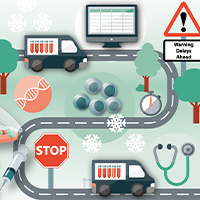Immunotherapy with iPSC-derived dendritic cells brings a new perspective to an old debate: autologous versus allogeneic?
Cell & Gene Therapy Insights 2019; 5(5), 565–577.
10.18609/cgti.2019.062
The advent of induced pluripotency has raised the prospect of personalized therapies based on the derivation of induced pluripotent stem cells (iPSC) derived from a patient’s own somatic cells. Such bespoke cell products may successfully circumvent issues of rejection by the recipient’s immune system but raise questions of affordability, the costs of generating patient-specific cell lines and their subsequent differentiation under cGMP conditions, proving a challenging business model. However, principles that have guided the decision between autologous and allogeneic cell products in the past may prove less reliable when considering the therapeutic use of dendritic cells (DC) differentiated from iPSC, whose role in the immune system would be adversely compromised in a fully allogeneic setting. Here, we review the immunological concepts that inform the debate between autologous and allogeneic cell therapies and discuss whether recent breakthroughs might provide a novel solution to this long-standing issue, paving the way for the widespread adoption of DC-based immunotherapy and increasing its reach from immune oncology (IO) to the induction of immunological tolerance.
